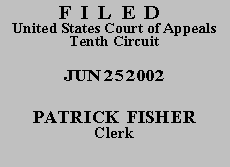

| UNITED STATES OF AMERICA,
Plaintiff - Appellee, v. JUAN CARLOS GARCIA-CASTILLO, also known as Juan Sarneinto Garcia, Juan Carlos, Juan Garcia, Juan Carlos Sarmiento, Carlos Sarmiento-Garcia, Juan Carlos Sarniento, Carlos Sarniento-Garcia Sarniento, Carlos Sarniento-Garcia, Defendant - Appellant. |
|
Defendant-appellant Juan Carlos Garcia-Castillo was indicted for and pleaded guilty to one count of illegal reentry following deportation, in violation of 8 U.S.C. § 1326. The maximum penalty under 8 U.S.C. § 1326(a) is two years in prison. However, subsection (b) of the statute increases the maximum penalty to twenty years in prison if the defendant committed an aggravated felony before deportation. See id. § 1326(b)(2). At his plea hearing, Mr. Garcia-Castillo admitted that he had been convicted in 1998 for second degree robbery, an aggravated felony under 8 U.S.C. § 1101(a)(43).
The district court sentenced Mr. Garcia-Castillo to seventy-seven months in prison to run concurrently with his Utah state sentence, to be followed by three years of supervised release. This sentence included an enhancement based on Mr. Garcia-Castillo's prior aggravated felony conviction.
Mr. Garcia-Castillo's sole issue on appeal is that the district court committed jurisdictional error when it sentenced him to a term of imprisonment that exceeds the maximum penalty for the offense of conviction. He argues that because the existence of his prior aggravated felony was not included in the indictment, a sentence of more than two years violates the United States Supreme Court's decision in Apprendi v. New Jersey, 530 U.S. 466 (2000).
In Apprendi the Court held that "[o]ther than the fact of a prior conviction, any fact that increases the penalty for a crime beyond the prescribed statutory maximum must be submitted to a jury, and proved beyond a reasonable doubt." Id. at 490 (emphasis added). As Mr. Garcia-Castillo acknowledges, and as the language quoted above makes clear, the Apprendi rule is subject to an explicit exception made necessary by the Court's earlier decision in Almendarez-Torres v. United States, 523 U.S. 224 (1998). See Apprendi, 530 U.S. at 487-90.
Interpreting the very statute at issue here, Almendarez-Torres held that the existence of a prior conviction is merely a sentencing factor, not a separate element of the offense that must be proved to a jury beyond a reasonable doubt. Id. at 235. As a consequence, the twenty-year prison term set forth in 8 U.S.C. § 1326(b)(2) may apply even where the indictment failed to allege that the defendant had a prior aggravated felony conviction. Almendarez-Torres, 523 U.S. at 226-27, 235.
Apprendi specifically refused to overrule the earlier Almendarez-Torres. See Apprendi, 530 U.S. at 489-90 (stating "[e]ven though it is arguable that Almendarez-Torres was incorrectly decided . . . we need not revisit it for purposes of our decision today to treat the case as a narrow exception to the general rule we recalled at the outset"). This court is also bound by its own decisions since Apprendi rejecting the argument that Mr. Garcia-Castillo makes here. See United States v. Martinez-Villalva, 232 F.3d 1329, 1332 (10th Cir. 2000) and United States v. Dorris, 236 F.3d 582, 587 (10th Cir. 2000), cert. denied, 532 U.S. 986 (2001). As we have said before, one panel of this court cannot overrule a decision of another panel. United States v. Hargus, 128 F.3d 1358, 1364 (10th Cir. 1997).
Mr. Garcia-Castillo states that he brings this appeal to preserve the issue for further review by the Supreme Court. He has done so. It remains our duty, however, to decide his case under the rule announced in Almendarez-Torres. The judgment of the United States District Court for the District of Utah is AFFIRMED.
Entered for the Court
Senior Circuit Judge
*. This order and judgment is not binding precedent, except under the doctrines of law of the case, res judicata, and collateral estoppel. The court generally disfavors the citation of orders and judgments; nevertheless, an order and judgment may be cited under the terms and conditions of 10th Cir. R. 36.3.